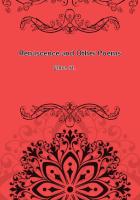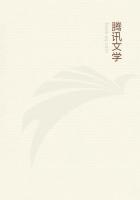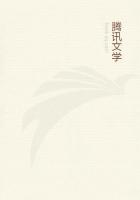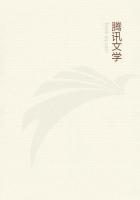The whole height of the falls is thirty-seven feet, eight inches, in a distance of twelve hundred yards.
A portage of four hundred and fifty yards was made around the first fall, which is twenty feet high, and perpendicular.
By means of lines the canoes were let down the rapids below.
At the season of high water the falls become mere rapids up which the salmon can pass. On this point the journal says:--"From the marks everywhere perceivable at the falls, it is obvious that in high floods, which must be in the spring, the water below the falls rises nearly to a level with that above them.
Of this rise, which is occasioned by some obstructions which we do not as yet know, the salmon must avail themselves to pass up the river in such multitudes that this fish is almost the only one caught in great abundance above the falls; but below that place we observe the salmon-trout, and the heads of a species of trout smaller than the salmon-trout, which is in great quantities, and which they are now burying, to be used as their winter food.
A hole of any size being dug, the sides and bottom are lined with straw, over which skins are laid; on these the fish, after being well dried, are laid, covered with other skins, and the hole is closed with a layer of earth twelve or fifteen inches deep.
. . . . . . . . .
We saw no game except a sea-otter, which was shot in the narrow channel as we were coming down, but we could not get it. Having, therefore, scarcely any provisions, we purchased eight small fat dogs: a food to which we were compelled to have recourse, as the Indians were very unwilling to sell us any of their good fish, which they reserved for the market below. Fortunately, however, habit had completely overcome the repugnance which we felt at first at eating this animal, and the dog, if not a favorite dish, was always an acceptable one.
The meridian altitude of to-day gave 45'0 42' 57.3" north as the latitude of our camp.
"On the beach, near the Indian huts, we observed two canoes of a different shape and size from any which we had hitherto seen.
One of these we got by giving our smallest canoe a hatchet, and a few trinkets to the owner, who said he had obtained it from a white man below the falls in exchange for a horse.
These canoes were very beautifully made: wide in the middle, and tapering towards each end, with curious figures carved on the bow.
They were thin, but, being strengthened by crossbars about an inch in diameter, tied with strong pieces of bark through holes in the sides, were able to bear very heavy burdens, and seemed calculated to live in the roughest water."
At this point the officers of the expedition observed signs of uneasiness in the two friendly Indian chiefs who had thus far accompanied them.
They also heard rumors that the warlike Indians below them were meditating an attack as the party went down. The journal says:--"Being at all times ready for any attempt of that sort, we were not under greater apprehensions than usual at this intelligence. We therefore only re-examined our arms, and increased the ammunition to one hundred rounds.
Our chiefs, who had not the same motives of confidence, were by no means so much at their ease, and when at night they saw the Indians leave us earlier than usual, their suspicions of an intended attack were confirmed, and they were very much alarmed.
"The Indians approached us with apparent caution, and behaved with more than usual reserve. Our two chiefs, by whom these circumstances were not observed, now told us that they wished to return home; that they could be no longer of any service to us; that they could not understand the language of the people below the falls; that those people formed a different nation from their own; that the two people had been at war with each other; and that as the Indians had expressed a resolution to attack us, they would certainly kill them. We endeavored to quiet their fears, and requested them to stay two nights longer, in which time we would see the Indians below, and make a peace between the two nations.
They replied that they were anxious to return and see their horses.
We however insisted on their remaining with us, not only in hopes of bringing about an accommodation between them and their enemies, but because they might be able to detect any hostile designs against us, and also assist us in passing the next falls, which are not far off, and represented as very difficult.
They at length agreed to stay with us two nights longer."
The explorers now arrived at the next fall of the Columbia. Here was a quiet basin, on the margin of which were three Indian huts.
The journal tells the rest of the story:--"At the extremity of this basin stood a high black rock, which, rising perpendicularly from the right shore, seemed to run wholly across the river: so totally, indeed, did it appear to stop the passage, that we could not see where the water escaped, except that the current was seemingly drawn with more than usual velocity to the left of the rock, where was heard a great roaring. We landed at the huts of the Indians, who went with us to the top of the rock, from which we had a view of all the difficulties of the channel. We were now no longer at a loss to account for the rising of the river at the falls; for this tremendous rock was seen stretching across the river, to meet the high hills on the left shore, leaving a channel of only forty-five yards wide, through which the whole body of the Columbia pressed its way.
The water, thus forced into so narrow a passage, was thrown into whirls, and swelled and boiled in every part with the wildest agitation.
But the alternative of carrying the boats over this high rock was almost impossible in our present situation; and as the chief danger seemed to be, not from any obstructions in the channel, but from the great waves and whirlpools, we resolved to attempt the passage, in the hope of being able, by dexterous steering, to descend in safety.

